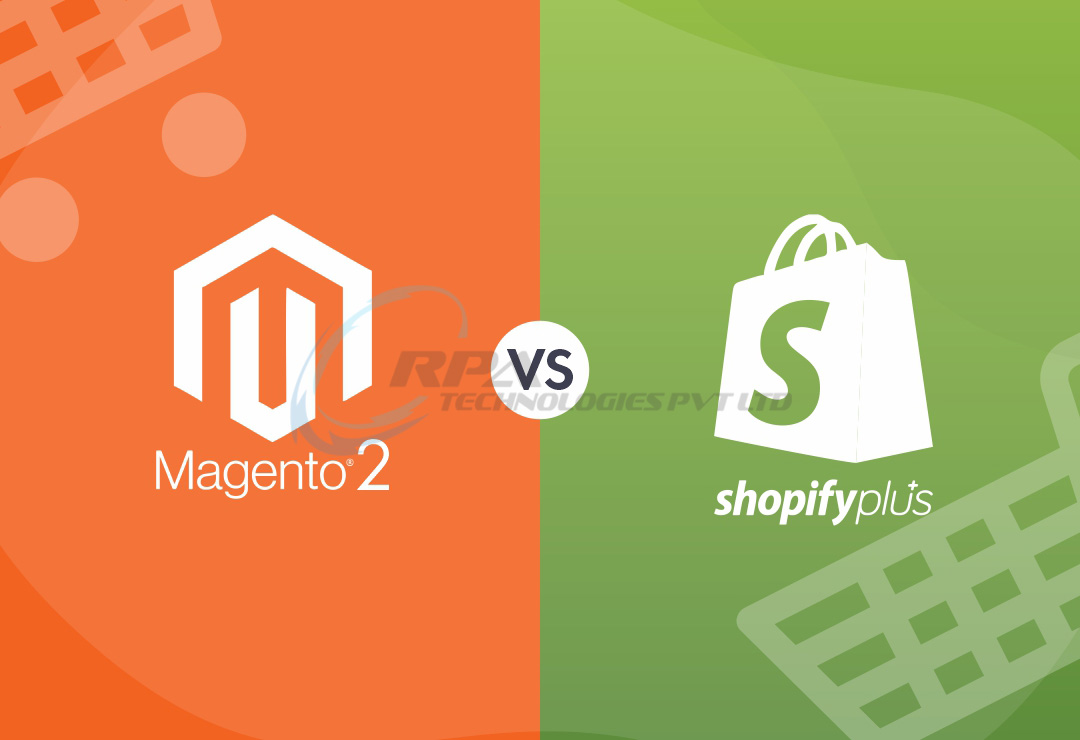Magento 2 Vs Shopify Plus: How To Select For E-commerce Store Development?
The task of building a brand new ecommerce store starts with a question- which platform to choose? Talking about the market trends, Shopify and Magento are two most renowned platforms usually shortlisted by experts of mobile app development.
The Businesses planning to launch a brand new online stores or those migrating from one platform to another always prefer either Shopify or Magento for doing so. However both these platforms have been advanced to Shopify Plus and Magento 2 in 2020, used by brands to become E-commerce businesses.
In this blog we will have an overview of each platform with detailed comparison and listing of the most expected scenarios faced by businesses while selecting anyone for their E-commerce store development:
What Is Shopify Plus and Magento 2?
Selection of appropriate ecommerce platform can make or break it and since there are various options available with bit-clear, objective guidance. This post is focused on sharing important information between two of most preferred platform: Shopify Plus and Magento 2.
- Shopify Plus is an advanced version which’s introduced to serve small retailers, and help them grew upward.
- Magento 2 is the enterprise version of a popular platform that was acquired by Adobe in 2018.
We have selected the important differentiating factors to help in making a wise decision while selecting best CMS for E-commerce development.
Hosting
Shopify Plus is a SaaS based service capable of running on various servers as well as its fully hosted. It has become a popular alternative to self-hosted software and companies who are moving from traditional hosting to web-based models. The best part here is the availability of website security - from SSL certificates to PCI compliance. These updates help in saving resources of manual website updates.
Magento is a self-hosted platform, meaning a requirement of third party host is required for the E-commerce store. Also Magento 2 website hosting needs a robust server, which leads to high- customization. This also means that any downtime or technical issues of your website is completely on your part. This is the reason why majority of companies prefer hiring magento developers to host their website and maintain security.
Ease of Use
Shopify is the simplest ecommerce platforms for usage. It’s been designed with backend features comprise of drag and drop functionality, customizing homepage, editing navigation can be done within few clicks. Even small changes can be done without developer assistance also. The availability of built-in tutorial makes the Shopify backend simple to use. It implements what you see is what you get without need of access to HTML or CSS when changes need to be done.
Magento is a complex CMS to set up and it’s difficult to use on a daily basis. It requires deep learning unless you are a backend developer or you will face tough to make changes with it. Although Magento has several unique features, you require advanced knowledge to implement them. There’s no drag and drop functionality, customizing homepage or navigation is complex job. If you are not tech-savvy, it is better to consult a professional ecommerce web development company for smooth development work.
Multi-Stores
Shopify Plus enables the creation of 10 different store views at a time, but they need to be on different interfaces which can be highly complicated. Here you can share the data between different stores using content sync. Shopify also provides a feature to sell in multiple currencies, but these prices will ultimately revert to your main currency at the checkout. This approach isn’t great for customer experience and requires proper change for better results.
Magento 2 allows you to target a global audience by creating a separate store for every country that too from a single interface. It allows you to have different websites for different countries. Also this multi-store functionality helps to share product catalogs across different stores can be applied all across websites.
Customer Support
Shopify Plus offers round the clock support through phone, email and live chat. Each user is provided with a Merchant manager for personalized support who also handle updates and security for users, but you are less likely need support in the first place.
Magento 2 offers forum support as well as 24/7 support from account management team. For self-hosted customers your support related queries get resolved through hosting provider which can make things complicated.
Wrapping Up:
Both the platforms have both advantages & disadvantages. Therefore the decision to select between Shopify Plus and Magento 2 is dependent on your business requirements. Major selecting factors are cost, security, hosting, business strategy, and available resources. Both CMSs are good for every business size- small to mid-size. But it is difficult to clearly state a winner between Magento 2 & Shopify Plus. If you want to sell limited products in limited space, then Shopify Plus is a perfect choice. But, if you have a huge list of products to sell, then Magento 2 is a perfect choice.








Comments